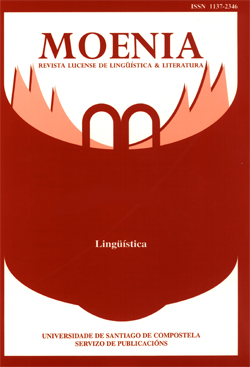Vol 21 (2015), Articles
Submitted: 20-10-2015
Accepted: 31-03-2016
Published: 01-06-2016
The phraseological units from the field of bull-fighting form part of a language that not only designates realities about the bull-fight, but also about activities and situations of everyday life. These structures make up a group of alternative designations or realities which are agreed upon by the linguistic community, while they are related to an immediate and preferred referent when ideas and feelings are expressed in multiple communicative contexts because they carry common denotative meaning as well as intense emotional weight. This article seeks to analyze the presence of bull-fighting phraseological units in bilingual Spanish-Italian dictionaries, their place in such repertoires and the lexicographical marks that head each phraseological unit. Then, a translation analysis and the equivalence of cultural patterns which are marked in Spanish and identified by Spanish speakers are carried out. Finally, certain proposals for a better comprehension of the verbal utterances made by Italian speakers when they carry out their searches in lexicographical repertoires are given.
Phraseological unit, Equivalence, Dictionary, Translation, Idiomaticity






